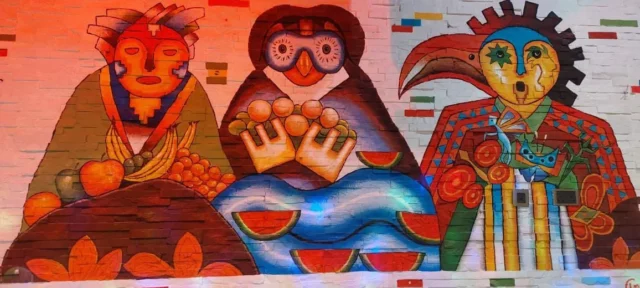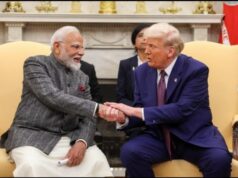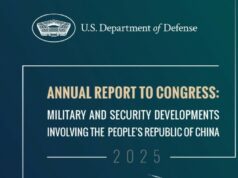NEW DELHI: India has a rare opportunity of proving its leadership mettle on the global stage, having simultaneously assumed leadership of three key international bodies.
For December India is the serving President of the United Nations Security Council (UNSC), the global body mandated with the task of maintaining international peace and security. Similarly, a little over two months ago it took over the leadership of the Shanghai Cooperation Organisation (SCO), the multilateral body which seeks to ensure stability and security across Eurasia. And last week it assumed the Presidency of the G20 group of countries—the new global high table for securing economic cooperation.
Apart from the fact that it boosts India’s international image—and renews its claim to be a permanent member of every global high table, including the UNSC—this is also a big test of the country’s leadership skills.
Managing consensus in a globally divided world is one thing.
An equally daunting task is for India to influence global thought such that by the time it hands off its presidency to Brazil next year it would have laid the foundations for a much needed new world order—in which the driving mantra is cooperation and sustainability.
The Challenge
The bad news though is that the odds are stacked against it at the moment.
Never before has the world witnessed so many back-to-back shocks. First, there was the Covid-19 pandemic, which had dodgy origins in Wuhan, China. It caused countless loss of lives, livelihood and disruption in global supply chains. This was followed by the ongoing Russia-Ukraine conflict, which further upended global supply chains—particularly for oil and food grains—and made a bad situation worse.
And just when most of the world was still trying to cope with these devastating fallouts, the U.S. Federal Reserve embarked on an aggressive tightening of interest rates to tamp down on surging domestic inflation. Among other things it dried up global liquidity and led to a strengthening of the dollar against most currencies—which is nothing but exporting inflation to the rest of the world as devaluation makes imports that much more expensive.
Meanwhile, another time bomb is ticking: the Chinese economy. The enigmatic country seems to be facing its worst challenge ever.
The health crisis triggered by the Covid-19 pandemic continues unabated two years later. It is becoming increasingly clear that the Chinese vaccine turned out to be a dud (very similar to the scud missiles launched by Iraq in the Gulf war). As a result the lockdown—the Plan-B for most countries—became Plan-A for China.
The end-result, the world’s factory and the second largest economy ($17.73 trillion) has slowed dramatically—the exact extent remains a mystery, especially since the Chinese data systems are always suspect. But the problem can no longer be denied.
And now the health problem is rapidly morphing into a political crisis, with protests breaking out across the country. If China does implode as some critics seem to suggest, or even comes anywhere close to it, the world is going to be dealing with another shock.
Already the outcome is scary. Large parts of the world—including Europe, UK and the United States—are flirting with a recession. A meltdown of the Chinese economy would scupper whatever hope the world has at the moment.
To add to the growing list of challenges, the trust quotient—a prerequisite to build consensus—in a deeply divided world is at a premium.
Worryingly, the recent record of the developed world is anything but inspiring. The manner in which they preempted production of Covid-19 jabs, the only defence against the pandemic, was despicable, to say the least. It left the South (the developing and under-developed countries) at the mercy of a once-in-a-century pandemic.
And ironically this is the very same clutch of countries who don’t waste a moment to wax eloquent about humanitarian excesses in the rest of the world.
In India, home to the second largest population in the world, the outcome of this vaccine shortfall would have been devastating, given its sell-past-the-date health infrastructure. Luckily the government played excellent defence in scrambling home-grown jabs—and even shared them with select countries under the Vaccine Maitri or Vaccine Friendship.
It also successfully staved off the health crisis snowballing into economic devastation by rolling out the free food programme for 800 million people. Simultaneously it rolled out a series of economic reforms—some, like the farm laws, had to be rolled back—which improved the plumbing in the system; which no doubt has contributed to the surprisingly quick rebound of the Indian economy.
The long and short of this is that India has emerged, in comparison with other countries, relatively unscathed. More importantly it has, in the last few years, exhibited by its actions that it is both unafraid to state its views unequivocally, take on threats to its sovereignty and that it is willing to shoulder global responsibility.
Its recent record in attempting to forge solutions to global problems, including cautioning Russia against continuing with its ongoing conflict against Ukraine, and the fact that the world desperately needs a mediator, provides the launchpad for leadership of the G20.
Like they say every challenge is an opportunity.
Yes, We Can
India did not waste a moment. On the very first day of its Presidency of the G20, Prime Minister Narendra Modi penned a public piece in which he signalled India’s plans.
The PM commenced by setting an ambitious agenda:
“The previous 17 presidencies of the G20 delivered significant results — ensuring macro-economic stability, rationalising international taxation, and relieving the debt burden on countries, among many other outcomes. We will benefit from these achievements, and build further upon them.
However, as India assumes this important mantle, I ask myself — can the G20 go further still? Can we catalyse a fundamental mindset shift, to benefit humanity as a whole? I believe we can.”
Thereafter, the PM did not mince words in spelling out the nature of the challenge that it has inherited as the next President of the G20.
“Our mindsets are shaped by our circumstances. All of history, humanity lived in scarcity. We fought for limited resources, because our survival depended on denying them to others. Confrontation and competition — between ideas, ideologies and identities — became the norm.
Unfortunately, we remain trapped in the same zero-sum mindset even today. We see it when countries fight over territory or resources. We see it when supplies of essential goods are weaponised. We see it when vaccines are hoarded by a few, even as billions remain vulnerable.
Some may argue that confrontation and greed are just human nature. I disagree. If humans were inherently selfish, what would explain the lasting appeal of so many spiritual traditions that advocate the fundamental oneness of us all?”
The India Way
The Prime Minister then went on to argue that India’s recent experiences, especially its ability to build and roll out Digital Public Goods (DPGs) at scale for public good, to suggest that there is an alt-view to the zero-sum approach adopted so far to resolve global challenges and differences.
“Our citizen-centric governance model takes care of even our most marginalised citizens, while nurturing the creative genius of our talented youth.
We have tried to make national development not an exercise in top-down governance, but rather a citizen-led “people’s movement”.
We have leveraged technology to create digital public goods that are open, inclusive, and inter-operable. These have delivered revolutionary progress in fields as varied as social protection, financial inclusion, and electronic payments.
For all these reasons, India’s experiences can provide insights on possible global solutions.”
It is clear that India is willing to seize its moment. It may well be the tipping point in India’s long standing bid to be part of the global high table.
(The author is a columnist and hosts a weekly show called ‘Capital Calculus’ on StratNews Global. Views expressed in this article are personal.)
Anil Padmanabhan has been a journalist for the last 36 years. He has worked in various capacities in several publications including Afternoon Despatch & Courier, Press Trust of India, Business Standard, Mint and was based in New York for India Today. He was a Nieman Fellow in 2001. He tweets at @capitalcalculus.





